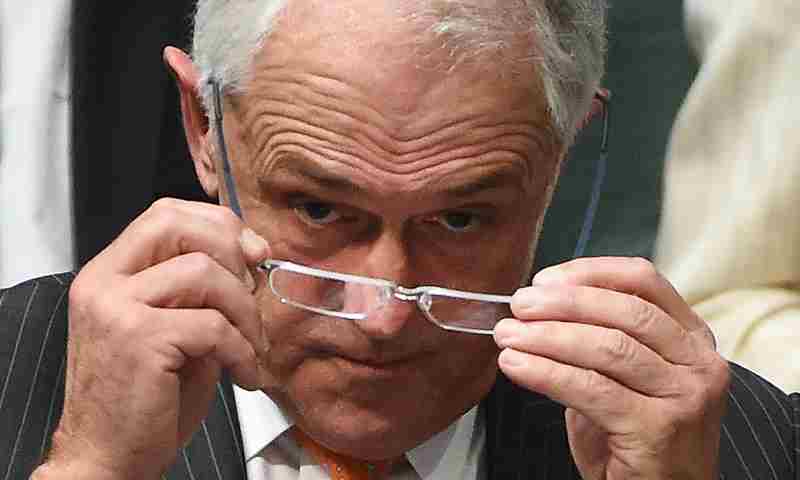 The Senate is a bit distant for Turnbull’s preoccupations right now. Of more immediate concern is how he seeks to assert his authority in the Liberal party room writes Dr Nick Economou
The Senate is a bit distant for Turnbull’s preoccupations right now. Of more immediate concern is how he seeks to assert his authority in the Liberal party room writes Dr Nick Economou
Melbourne, August 3: With the allocation of surplus and preferences being finalised for the Senate count in three states, the end of the 2016 federal election is nigh. The Liberal-National coalition government has been returned but with the barest majority of 1 seat in the House of Representatives.
The Senate, meanwhile, appears to be almost as it was ahead of the double dissolution Liberal leader and prime minister, Malcolm Turnbull, called partly on the grounds that he wished to reduce the size and complexity of the upper house cross bench he inherited from the 2013 election.
The only difference now is that the cross-bench has become even more firmly populist than it was before.
In the case of the Senate, Mr Turnbull’s decision to spill the entire upper house now looks like a disaster, not the least because of the platform he has provided for a candidate like Pauline Hanson to not only revive her own political career but to bring some fellow travellers with her.
In addition to reviving Pauline Hanson and getting Derryn Hinch in to the Senate, it appears that the Turnbull government’s changes to the Senate voting system have assisted the Greens party maximise its representational outcome. It is hard to recall any previous act of such politically balanced magnanimity than the Turnbull government’s approach to the Senate. It would be interesting to note if his re-invigoration of the far right and far left were intended consequences of his strategy.
Of course, the upper house is a bit distant from Turnbull’s preoccupations right now.
Of more immediate concern is how he seeks to assert his authority in the Liberal party room in the wake of a truly awful performance in the House of Representatives election. With the Queensland seat of Herbert being won by Labor, Turnbull has managed to fritter away a fairly comfortable majority bequeathed by his predecessor Tony Abbott. The government was actually just one seat away from total disaster.
Had the Liberal party not won the Victorian seat of Chisholm from Labor, its total number of seats would have been 75 and the government would have had to rely on cross-bench support to survive. Like Julia Gillard after the 2010 election, Turnbull would have been leading a minority government.
What does this near-disaster mean form the prime minister and his government? Apart from the fact that it will need all the negotiation skills it can muster to get anything past the new Senate (and there is no evidence to suggest Turnbull possess such ability), the government needs to be mindful of its own parlous situation in the lower house. One defector from either the Liberal ranks or, indeed, in the coalition partner, the National party, could have dire political consequences.
Presumably the future in Australian politics will require political leaders to be careful in their approach to the policy debate. Given the way it has blundered its way around its inquiry in to youth detention in the Northern Territory, it would appear that the imperative for careful and considered responses to political challenges has not yet been grasped by the government.
Nor has Turnbull been particularly good at cruelling the United Nations ambitions of his previous political foe Kevin Rudd (and, in so doing, has inflicted yet more damage on the reputation of his foreign minister, Julie Bishop).
If the way these matters are being dealt with is an indication of things to come, then Australians should probably brace themselves for either an early election or perhaps a change of Liberal leadership.
The fact that the government lost as many seats as it did in the last election is not in itself an indication of it being in terminal decline.
It should be remembered that former prime-minister John Howard experienced a not dissimilar swing against him in the 1998 election (indeed, Howard lost more seats than Turnbull) and yet was able to win the next two national elections. Admittedly, international affairs contributed something to Howard’s successes, but it was also the case that his party (and, indeed, the National party as well) remained united and disciplined behind him until the 2007 election before which an attempt had been made from some within the cabinet to move him on. Electoral defeat followed soon after.
The benchmarks confronting Turnbull and his government can be quickly summarised. The government’s main priority will be survival, and for that to happen it would be foolish in the extreme for it to introduce legislation on any matter that could divide the Liberal and/or National parties.
A fight with the Senate may be unavoidable and may not necessarily result in much political damage, but a schism between liberals and conservatives within the governing parties would be a disaster.
Given the parlous state of the parliamentary numbers, the government would be wise to pursue a minimal reform agenda so as to avoid being cast as impotent as a result of upper house intransigence.
In short, the immediate future will require careful incremental and statesman-like leadership on the part of Mr Turnbull. It will be interesting to see if he possesses, or perhaps may be able to develop this skill set for it has not been particularly evident so far.
It is to be hoped, for his sake, that he is better at formulating parliamentary strategies than he has been at election strategies.
(Dr Nick Economou teaches Politics at Monash University’s Clayton campus and is a regular commentator on Australian Radio and Television)

